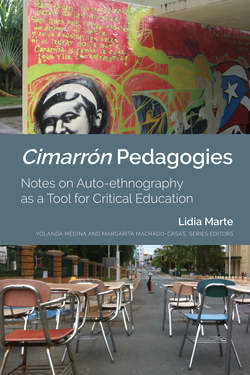Читать книгу Cimarrón Pedagogies - Lidia Marte - Страница 16
На сайте Литреса книга снята с продажи.
Significance and Contributions
ОглавлениеThis book contributes to the use of interdisciplinary qualitative research methods in the classroom, especially to further undergraduate research. Indirectly this work contributes to anthropology of education and to new trends in Latino Critical ←7 | 8→Studies. Through this book, I want to contribute to further research-centered teaching and place-based education (this later used mostly in biology and ecology education), by enriching these approaches with the use of auto-ethnographic methodologies (formerly practiced by minority, “native” and feminist teachers). This bricolage is a powerful combination of tools for a radical liberation pedagogy, which has been nurtured from Freire’s early work to most current experimental teaching practices, such as the “flipped classroom” (Keengwe 2014) and “critical citizenship” (Johnson & Morris 2010). These methods, and the transdisciplinary techniques we might add to them (such as mapping methods), are suitable because they begin where it matters; the social and ecological relations of where and when students are, what they are doing and with whom, and how they are narrating their experiences.
The main intention for this intervention in a public dialogue about education (from my non-expert perspective), is to promote more experiments and renewing of commitment to an “engaged pedagogy,” one that could help teachers, students and their communities, to regain some joy and investment in the very process and fruits of learning. Another intention is to inspire an active production of interdisciplinary knowledge by and for, not just about the diversity of “localities.” The concept of “place-memory” (Hayden 1997) encapsulates for me the need for local, native, auto-ethnographic research focused on the’ infra-politics’ of everyday life, on local micro-histories. Through these shifting intimate scales, which are the most immediate grounds of our individual and collective survival, we keep learning how to find (and to create) a sense of “home” in this strange and beautiful Planet. These immediate realms help us generate relevant questions about our cultural coordinates, from the most concreted economic and embodied negotiations, to our most radical collective hopes.
